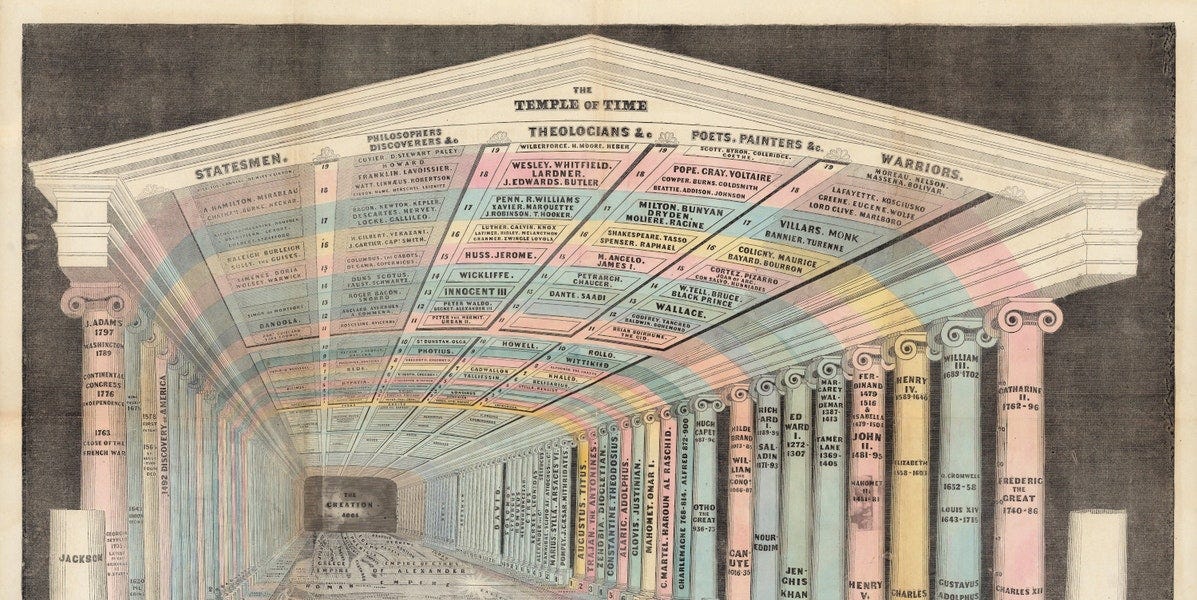In the interest of building a narrative (it's no coincidence that history and story are similar words), you take out everything not relevant, and end up with only a small sliver of the entire state of the world at any given time point. Of course, that sliver may contain some breadth, if you're writing a narrative of something large like "the... See more

